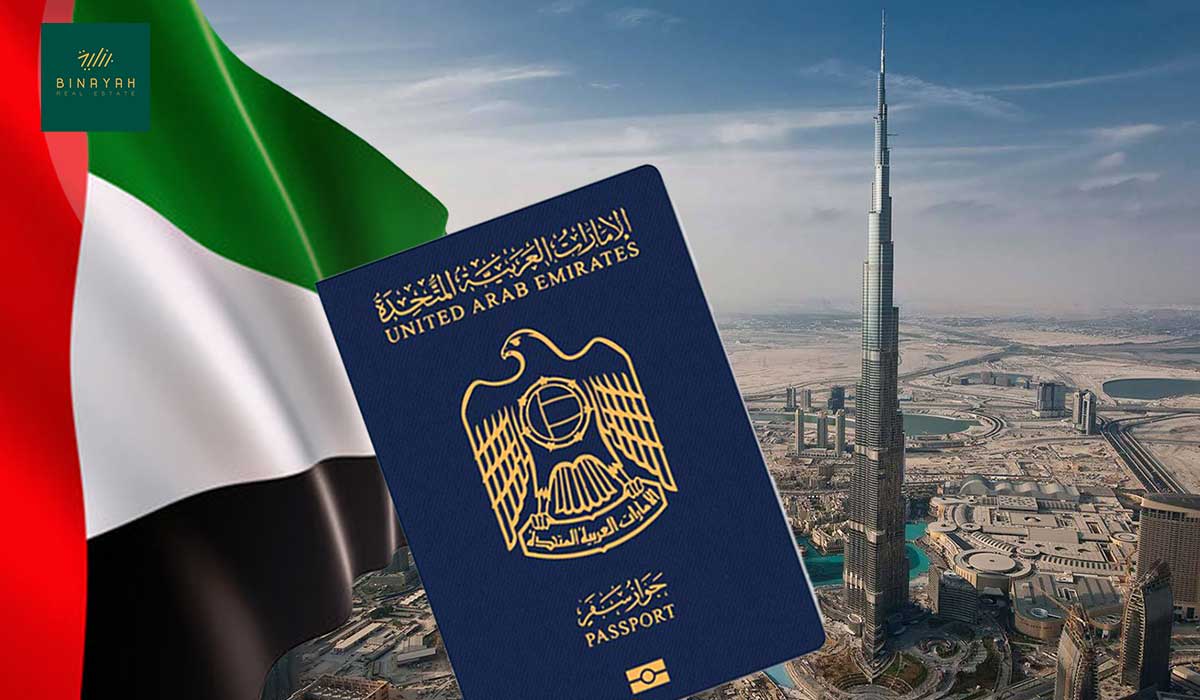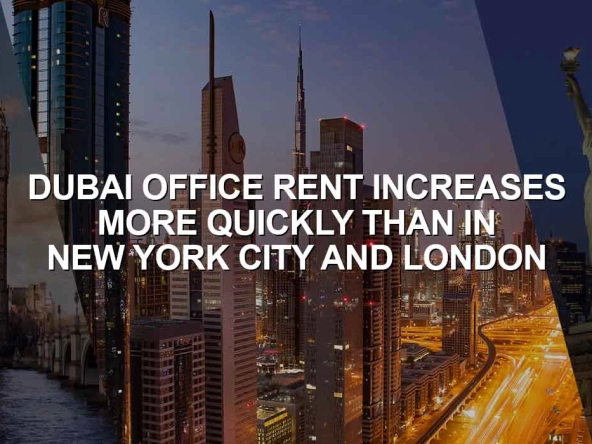Visitors to the United Arab Emirates (UAE) flock to Dubai, which is one of the most popular tourist attractions. The fact that Dubai has remade itself as an international tourist destination over the past decade is undeniable. In recent years, it has become much easier to get a UAE Visa, but adhering to the correct protocol and satisfying all requirements is essential.
A visiting visa is required for anyone planning to stay in the UAE for longer than 14 days. You will need one of the following sponsors to make this work:
- Company
- Residents of the United Arab Emirates
- Hotel in the United Arab Emirates with a license to operate
What is the difference between a UAE Visit Visa and a UAE Tourist Visa? The key distinction between tourist visas and visit visas in the UAE is their duration of validity. The UAE tourist visa is only valid for 30 days, although it can be extended for up to 90 days.
Here are some key distinctions between the two:
- A tourist visa can only be used for leisure and recreation, but a business visa can be used for business meetings, seminar participation, and other objectives.
- A visit visa allows you to stay for 14 days or 30 days, with an extension of up to 40 days, whilst a business visa allows you to stay for 90 days.
The tourist visa charge in Dubai is greater than the tourist visa fee in other countries. The 90-day tourist visa costs AED 825, while the 30-day tourist visa costs AED 305.
- A tourist visa cannot be transferred into another visa, although a visitor visa can be converted into a work visa.
- Tourist visas are only valid for two months, whereas visit visas are valid for up to six months.
- A tourist visa sponsor can be a friend, relative, or a hotel or local agency in the UAE, although in the case of a tourist visa, the sponsor must be a UAE resident.

There are diverse kinds of UAE Visit Visa
90-day visit visa: The Dubai 90-day visit visa is valid for 58 days from the date of issue and permits you to stay in the UAE for up to 90 days from the date of admission. The fee for a 90-day visa is AED 825.
90 days of pleasure on a single entrance long-term visa: This Dubai visit visa is good for an additional 58 days and is valid for 90 days from the date of entry.
EVisa: Visitors to Dubai can apply for a web visa after approval is delivered to the applicant’s registered email address. UAE nationals, UAE expatriate residents, GCC citizens living in the UAE, GCC residents, and guests will all need to apply for entry permits/visit visas for themselves, family members, and visitors.
Long-Term, 90-Day Multiple-Entry Visa: Unlike the eVisa, this is a multiple-admission visa that is valid for 58 days from the date of issue and is limited to 90 days from the date of initial entry into the UAE. The price for a 90-day multiple-entry long-term visa in Dubai is $1655.
30 day short-stay multiple entrance visa: This visa is valid for 58 days and provides for a 30-day stay from the date of admission. The charge for a 30-day tourist visa in the UAE is AED 305. The express 30-day tourist visa costs AED 469.
30-day visa (CCG resident) and 30-day visa (accompanied GCC): For CCG residents, the visa is valid for 60 days from the date of issue, and is thus valid for 30 days from the day of entry, unless extended for another 30 days.
How do you renew your UAE Visit Visa?
Now that we’ve established what a visit visa is, there are four options for renewing your Dubai visit visa, which are as follows:
- Fill out an application at the DNRD If you want to stay in the UAE, you can go to the Department of Naturalization and Residence (DNRD) and fill out an application. This application submission will cost you 500 AED, and you will be able to stay in the UAE.
- The Visa Run
- Another popular strategy is known as Visa Run. You can leave the UAE and then return by scheduling a visa journey from Dubai, Sharjah, Abu Dhabi, Muscat, Bahrain, Doha, or Kish Island.
- Visa Flight
- The cost of this approach will range between 500 and 1000 AED, primarily due to the expense of the flight (excluding visa fees). After landing, proceed to the airport departure terminal and board an aircraft back to the UAE. When you arrive in the UAE, you can obtain a fresh visit visa that is valid for an additional 30-60 days. This procedure is not only costly, but it is also time-consuming.
- Cross the border
- A border exit stamp is required for this approach to work. You can then go to Oman border control once you have it. Keep the ticket they offer you because you’ll need it to show the authorities when you return to the UAE. Go to the immigration office and receive an entry stamp as well as a new visa. The Oman exit stamp costs 60 AED. The last step is to return to the UAE border and obtain your new guest visa.
Regarding the visit visa, consider the following: Article 12 of Federal Law No. 6 of 1973 on Immigration and Residence, as revised by Law 7 of 1985, Law 13 of 1996, and Federal Legislative Decree No. 17 of 2017 reads as follows:
Unless they have received a residency permit, any foreigner entering the country with a visa or residence permit must depart the country on the expiry date of that visa or permission, either via cancellation or after the deadline.
Any foreigner who is exempt from the permission or visa requirement under Article 2 (2) of this Act shall depart the country within thirty days of his entry, unless he is given a residence permit during that time.
Renewal or Extension of a Tourist Visa
While we’re on the subject, we should go over the procedure for renewing your tourist visa. All visas, including tourist visas, can be extended twice for a total of 30 days.
You can achieve all of this without leaving the United Arab Emirates. Visitors and tourists can obtain a second renewal before the first expires for AED 600 each renewal. Visa overruns that are not renewed as mentioned above will result in a fee of AED 100 per day beginning 10 days after the visa expires.
The new renewal rule, however, does not apply to the following categories:
- Visitors and tourists who live in GCC countries.
- Residents accompanying residents of the Gulf Cooperation Council.
- Individuals with special entrance permits.
- Capital missions are granted 96-hour leave.
Visa Requirements for Non-US Citizens
Traveling to the UAE Visitors from the following countries are granted a one-month stay on a tourist visa:
Andorra, Australia, Austria, Bahrain, Belgium, Bulgaria, Brunei, Canada, China, Croatia, Cyprus, Czech Republic, Denmark, Estonia, Finland, France, Germany, Greece, Hong Kong, Hungary, Kuwait, Iceland, Ireland, Italy, Japan, Latvia, Liechtenstein, Lithuania, Luxembourg, Malaysia, Malta, Monaco, New Zealand, Norway, Oman, Poland, Portugal, Qatar, Romania, San Marino, Saudi Arabia, Seychelles, Slovakia, Slovenia, Singapore, South Korea, Spain, Sweden, Switzerland, the Netherlands, the United Kingdom and Northern Ireland (excluding British overseas citizens), the Vatican.
In order to take advantage of and obtain the one-month tourist visa it is necessary to have the following documents available:
- Original passport
- Passport must be valid for at least six months from the date of entry into the United Arab Emirates
- A return flight ticket or a ticket to a different location
Visa Requirements for US Citizens Traveling to the UAE
If you have a valid passport, you do not need a visit visa to enter the UAE. Citizens are permitted to stay in the UAE for up to 30 days. If they choose to remain in the UAE, they must contact the immigration officer at the airport or the local immigration department for more information.
However, the following documents are required in order for them to be admitted:
- Original passport, valid for at least six months from the date of entry into the United Arab Emirates.
- Confirmed return plane ticket or ticket to any other port of destination.
GCC Citizens’ Visit Visa Requirements to the UAE Although this is common knowledge, it is worth noting that Gulf Cooperation Council countries do not require a visa to visit the UAE. Bahrain, Oman, Kuwait, Qatar, and Saudi Arabia are among the GCC countries.
Not all citizens are eligible for 330-day non-renewable visit visas, but individuals in reputable positions such as doctors, engineers, and government officials are. Others would have to go through a separate process to be considered.
UAE Visa Requirements for Citizens of the Gulf Cooperation Council
While this is common knowledge, it is worth noting that GCC (Gulf Cooperation Council) countries do not require a visa to visit the UAE. Bahrain, Oman, Kuwait, Qatar, and Saudi Arabia are among the GCC countries.
Except for individuals in respected professions such as doctors, engineers, and government personnel, all nationals are eligible to a non-renewable 30-day guest visa. Others would have to go through a separate process to be considered.
Other Nationalities’ Visitor Visa Requirements in the UAE
All countries that are not listed above must contact the UAE Embassy. Your application will be examined once you have completed all of the requirements and provided a valid passport. Alternatively, securing a visa through a local UAE sponsor or local UAE hotel is a viable alternative.
It should be noted that the laws and restrictions for visiting visas are continually changing. The material supplied has been updated, but it may no longer be applicable in the future. As a result, you should always consult with the appropriate authorities before making a final choice.
Conclusion
All visitor and tourist visas can be extended by 30 days twice upon application and approval by the authorized authority. You don’t have to leave the nation to do this. Visitors and tourists can obtain a second renewal before the first expires for AED 600 each renewal. Visa overruns that are not renewed as mentioned above will result in a fee of AED 100 per day beginning 10 days after the visa expires.
The new renewal rule, however, does not apply to the following categories:
- Visitors and tourists from the Gulf Cooperation Council (GCC) countries.
- CCG nationals are accompanied by residents.
- Individuals with specific admission permits.
- Special operations personnel having 96-hour permits.





